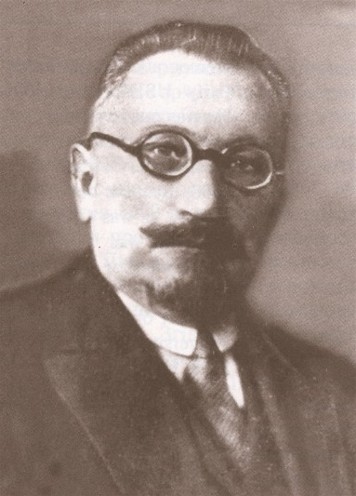Livytsky, Andrii
Livytsky, Andrii [Лівицький, Андрій; Livyc’kyj, Andrij], b 9 April 1879 in Lypliava, Zolotonosha county, Poltava gubernia, d 17 January 1954 in Karlsruhe, Germany. Jurist and civic and political leader; husband of Mariia Livytska; father of Mykola Livytsky. After graduating from Galagan College in Kyiv and the law faculty of Kyiv University he worked as a lawyer and civic judge. He was active in the Ukrainian movement as president of the student hromada in Kyiv, and in 1901 he joined the Revolutionary Ukrainian party and became president of its Lubny branch. He was arrested in 1905 for his political activities and tried as the chief instigator of the so-called Lubny Republic and Civil Self-Defense, which opposed Jewish pogroms. From 1905 to 1920 Livytsky was a leading member of the Ukrainian Social Democratic Workers' party. In 1917–18 he sat on the Central Rada and the Central Committee of the Peasant Association, served as the Ukrainian National Republic commissioner of Zolotonosha county and then of Poltava gubernia, and belonged to the Ukrainian National Union, which prepared the uprising against the Hetman government (November 1918). Under the Directory of the Ukrainian National Republic he chaired the commission for convening the Labor Congress, which he attended. In April 1919 he was appointed minister of justice and deputy prime minister of the UNR government, and in August he was also appointed director of the Ministry of Foreign Affairs. In October 1919, as head of the diplomatic mission in Poland, he was given the difficult assignment of forging an alliance against Soviet Russia. His negotiations in Warsaw culminated in the Treaty of Warsaw.
One year later Livytsky became head of the UNR government and went with it into exile in Tarnów, Poland. At the end of 1921, after the tragic outcome of the Second Winter Campaign, he persuaded his colleagues to set up the Government-in-exile of the Ukrainian National Republic. While living in Warsaw he collaborated with Symon Petliura, the leader of the Directory of the Ukrainian National Republic, in managing the government's diplomatic, political, and military affairs. After Petliura's death in 1926, Livytsky succeeded him as vice-president of the Directory and supreme otaman of the Army of the Ukrainian National Republic and thenceforth headed the government-in-exile. During the Second World War he was confined to Warsaw by the Germans. On his express instructions Viacheslav Prokopovych (and the head of the government, Oleksander Shulhyn) in Paris assumed the temporary presidency of the Directory and declared the UNR government's support of France, Britain, and Poland against Germany. In 1945 Livytsky reactivated the Government-in-exile of the Ukrainian National Republic and invited representatives of the new emigration to join it. In 1946 he instructed Isaak Mazepa to unite all political parties around the state center of the UNR, and that union eventually resulted in the organization of the Ukrainian National Council (1947). At the first session of the council Livytsky was elected president of the Government-in-exile of the Ukrainian National Republic for life. In 1965 his remains were transferred to the Ukrainian cemetery in South Bound Brook, New Jersey.
[This article originally appeared in the Encyclopedia of Ukraine, vol. 3 (1993).]

.jpg)
